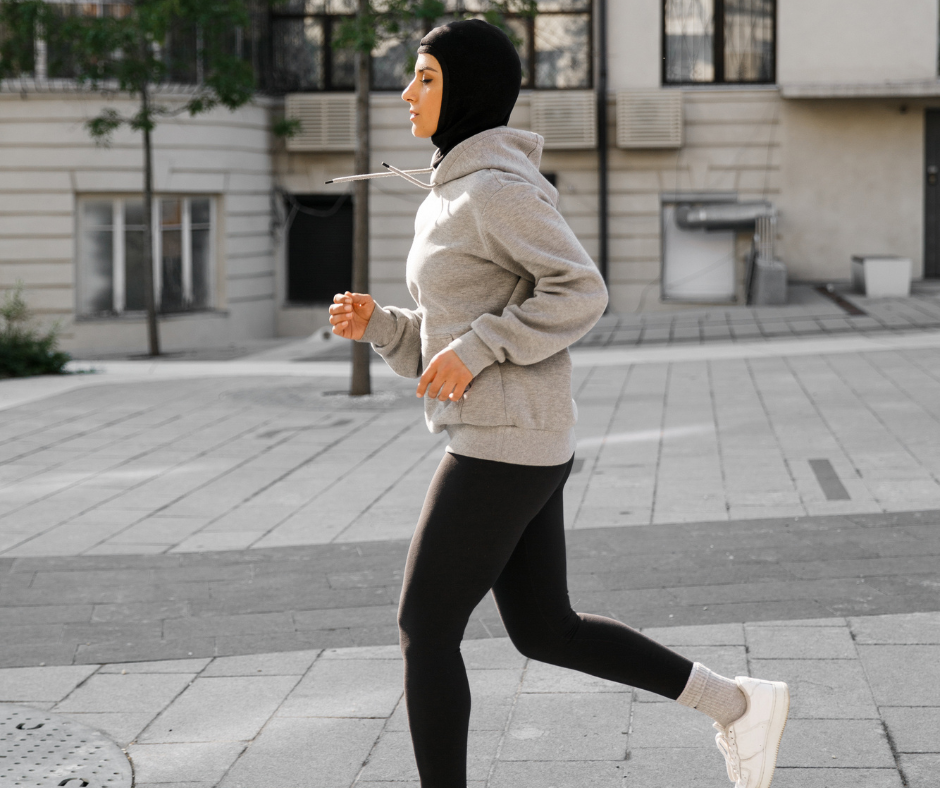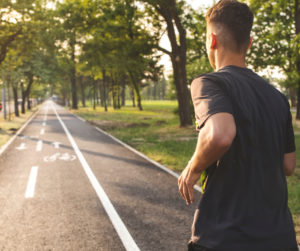The Muslim holy month is called Ramadan. You may not even know it but there is a very high chance that your friend, colleague, or running club member could be observing the month by celebrating and fasting.
During the entire month of Ramadan, Muslims will fast every day from sunrise to sunset. Even those who are training and running don’t eat or drink water for that period.
It’s safe to say that most runners are a competitive breed, which begs the question if they are training during Ramadan, is it safe to compete in races too?
Let’s find out…

Explanation Of Ramadan
The fasting period is meant to be a very spiritual time where you practice discipline daily while focusing on your spiritual relationship.
Those who fast during Ramadan abstain from eating, drinking, and smoking from sunrise to sunset for one month. At the end of Ramadan, there is a three-day breaking fast celebration called Eid al-Fitr.
Fasting is meant to be seen as a cleansing detox. The entire day you may feel hungry and even have stomach pains from being so hungry, you spend time imagining what you’re going to eat once the sunsets… but when the time comes you have to pace yourself, or else you will feel nauseous and sick. (A good food to break fast with is soup and bread.)
During Ramadan, those who are observing it, wake up very early in the morning to have their first meal of the day. (Which needs to last till sunset) and to perform their morning prayer.
This is when runners could head out for their run or do training after their first meal and sufficient water intake.
Training during Ramadan needs to be done cautiously and more importantly, consuming the correct foods and nutrients when you can eat is vital. Runners should focus on eating slow-release carbs and what they know works well for their bodies to keep them sustained for the entire day.
Then the day continues as normal, despite not being able to drink and eat anything.
When the evening call to prayer is made, they break the day’s fast with a light meal first… eg. soup & bread, followed by the evening prayer and then a bigger meal.
Then it’s off to get a few hours of sleep only to start the process again before sunrise.
Now that we have a better understanding of what Ramadan entails… Let’s have a look at the effects of fasting on your body and training…
The Effects Of Fasting On Your Running Performance
Many recent studies, which validate not fasting before training, have proven that excessive within-day energy deficits hurt health & performance, even when controlling for daily caloric intake.
In other words… by intermittent fasting, by restricting when you consume food…
Women are experiencing menstrual dysfunction, suppressed resting metabolic rates & lower estrogen levels.
Men are experiencing suppressed resting metabolic rates, higher cortisol levels, and lower testosterone levels.
When fasting, your body moves through a fasting cycle, where a number of changes take place:
During the first few hours of eating a meal your blood sugar levels rise, which results in your body secreting insulin. Extra glucose is stored in your muscles as glycogen, this is your body’s primary source of energy, and hormones such as Leptin (hunger-suppressing) and Ghrelin (stimulates hunger) shift.
Then, after a few hours, your insulin & blood sugar levels start to drop, resulting in your body turning glycogen into glucose (energy)
Your body will slowly run out of liver glycogen stores and look for another energy source… say hello to lipolysis. (fat cells break down to be used as energy)
After not eating for 18 hours+ your glycogen stores in the liver have been depleted, and your body begins breaking down protein and fat for energy instead.
Your body will now be in ketosis. (Using fat for energy)
Being in Ketosis will decrease your appetite, induce weight loss, increase fatigue, cause bad breath, and increase levels of ketone bodies in the blood.
If you haven’t eaten a meal by now (48hrs after food), this state is referred to as the “Starvation state”. Here, your insulin and BHB levels will rise, your kidneys will generate sugar as energy for your brain, and your branched-chain amino acids (BCAAs) are reduced to help conserve muscle tissue.
Fasting during Ramadan won’t be more than 12 hours per day and is only practiced for one month.
Note: Those who are ill, pregnant or nursing, menstruating, young children, and the elderly are exempt from fasting.

Taking the above into consideration, we can understand that your approach to training during Ramadan needs to be individualistic and based purely on how you feel. The only way you can find out what works best for you and your body is by trying out different methods.
– For some, training during Ramadan involves running no more than 15 km at a very easy pace right after the first-morning meal.
– For others, it means training right before you break the fast at sunset so that you are guaranteed water after your session.
– For others, it means following a walk-run strategy and focusing more on low-intensity strength training sessions.
Competing in races during Ramadan is not the same as training and should not be taken lightly. It can lead to serious health implications and is not worth the risk.
With the combination of a sound hydration strategy and a sound nutrition strategy, all you need is a safe and effective training strategy, let’s get you all set to train successfully through Ramadan.
That’s why we created this comprehensive guide for training through Ramadan just for you.
Let’s have a look at why this is true.
Why You Should Not Run Races While Fasting During Ramadan
Competing in races will increase your heart rate and is not recommended. During Ramadan, you should avoid all high-intensity activities that will leave you feeling worn down, fatigued, dehydrated, and at serious injury risk.
Ramadan is not a time for competing and trying to tackle new goals… it’s a time to maintain what you’ve worked on in the months leading up to Ramadan.
Faheemah Limbada: The Only Scenario Where It Is Considered OK To Race During Ramadan
Faheemah is a passionate runner and was happy to share her story of how she completed the 2018 Comrades Marathon during Ramadan…
The way fasting works for men compared to women is different. Women don’t have to fast while they are menstruating.
For Faheemah, The Comrades Marathon fell over her menstruation cycle, which meant she didn’t have to fast for those days.
She told us that she was quite nervous that her body wouldn’t be able to handle the Ultra Marathon because of the fasting she had done in the days leading up to it, but she wanted to give it a bash anyway.
Faheemah broke her fast 4 days before race day and then for 2 more days after race day.
Happily, the race was a complete success.
She mentioned that from a Muslim perspective, her running the race did create a lot of contention because a lot of Muslims believe the month is purely spiritual and that she shouldn’t have been doing activities like the Comrades Marathon. Faheemah also had a lot of people looking at her as if she was crazy to try and achieve such a goal during Ramadan.
It worked out that Faheemah had to sacrifice one day only. (Which means not fast without a valid reason.) To make up for a missed day you have to do some charity work.
Faheemah felt that running the race was a very personal achievement and that it was the right thing to do during Ramadan. Her father has been fighting cancer for years and on that principle, she had always run her Comrades races for a charity for cancer patients. She felt the race was her spiritual journey and aligned with what Ramadan stands for.
In a nutshell, we recommend that you continue training during Ramadan but you need to understand that it’s not a time to set personal records and achieve new goals. Use the opportunity to get in tune with how your body feels and build on other aspects of your training like mobility, stability, sleep, and hydration.



Comments are closed.